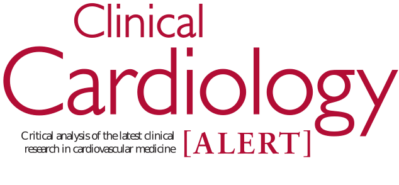
Clinical Cardiology Alert – August 1, 2018
August 1, 2018
View Issues
-
Choosing a Vasopressor in Cardiogenic Shock: Is There a Difference?
When studying cardiogenic shock after acute myocardial infarction, these investigators found using epinephrine compared to norepinephrine produced similar effects on blood pressure and cardiac index, but resulted in a higher incidence of refractory cardiogenic shock.
-
Invasive Procedures and the Risk of Infective Endocarditis
This large study suggests that several invasive, nondental medical procedures may be triggers for subsequent infective endocarditis, reopening the debate regarding prevention and management.
-
Tailored Anticoagulation for Paroxysmal Atrial Fibrillation
Intermittent anticoagulation guided by continuous assessment of arrhythmia status in patients with low-to-moderate risk did not result in any strokes or thromboembolic events over a relatively short follow-up period. Such a strategy may be an alternative to chronic anticoagulation but requires further study.
-
When Can Surgeons Perform Aortic Valve Replacement Safely After a Stroke?
Interrogation of Danish administrative registry data demonstrated that a stroke within three to four months of aortic valve surgery was associated with a higher rate of perioperative stroke.
-
Anticoagulation Management After Intracerebral Hemorrhage in Mechanical Heart Valve Patients
An observational study of patients with mechanical heart valves on oral anticoagulants who had an intracranial hemorrhage demonstrates that it generally is safe to resume anticoagulants after 14 days. However, in high-risk-for-thromboembolism patients, such as those with atrial fibrillation, restarting anticoagulants six to 13 days postoperative may be considered.
